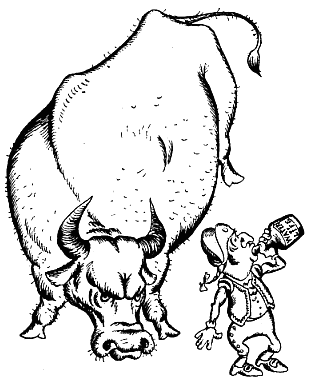107Stories About ChemistryINDEX |
18.
"Water of Life", Life-Giving, Omnipresent Water
Multitudes of folk tales of various peoples are based on the legend of the �water of life.� It healed wounds and revived the dead. It made the coward brave and increased the strength of the brave a hundredfold.  It is not by chance that man attributed such magic properties to water. The very fact that we are alive on Earth, that we are surrounded by green woods and flowering fields, that we can go boat riding or run through puddles under the rain in summer and go skiing or skating in winter - is all due to water. To be more exact, all this is due to the ability of water molecules to attract each other and form associations. This is one of the conditions for the origin and development of life on our planet. The history of the Earth is primarily the history of water. It has continuously changed and still goes on changing the face of our planet. Water is the greatest chemist in the world. No natural process takes place without it - be it the formation of a new rock, a new mineral, or a highly complicated biochemical reaction taking place if the organism of a plant or an animal. Chemists could hardly do anything in their laboratories without water. In studying the properties of substances, their transformations, in producing new compounds they can get along without water only in rare cases. Water is one of the best solvents known. And many substances must be dissolved before they can enter into reactions. What happens to a substance when it dissolves? The forces acting between the molecules and atoms at its surface are weakened many hundredfold in water, as a result of which they break away from the surface and pass into the water. In a glass of tea a piece of sugar breaks down into separate molecules. Table salt decomposes into charged particles known as sodium and chloride ions. Owing to its peculiar structure the water molecule possesses a great ability to attract the atoms and molecules of a dissolving body. Many other solvents are inferior to water in this respect. There is not a rock on the Earth that can resist the destructive action of water. Even granites yield slowly but surely. Water carries the substances it dissolves off to the seas and oceans. That is what makes these tremendous bodies of water salty, though hundreds of millions of years ago the water in them was fresh. |





